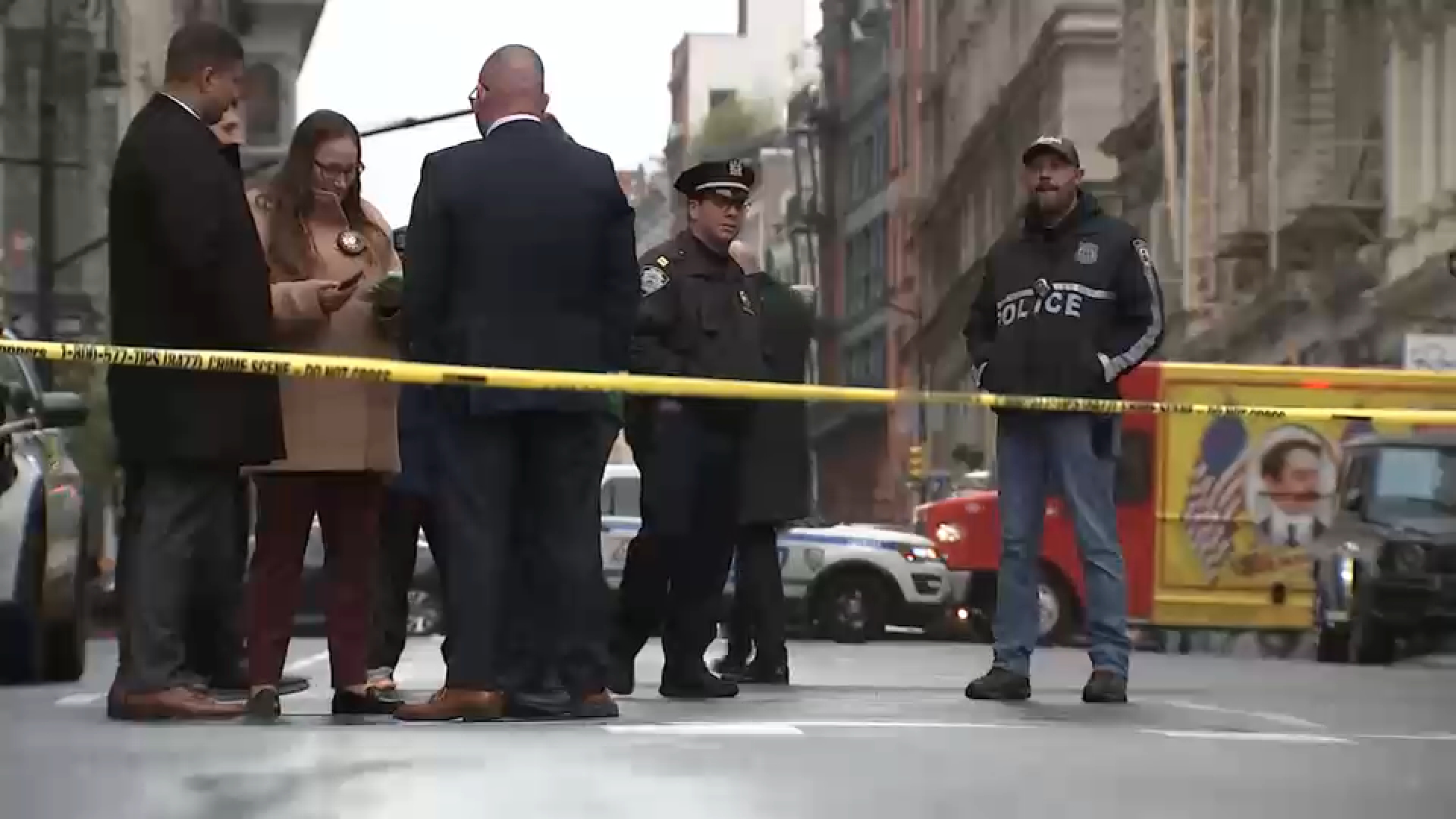'Over and over again:' Mayor Adams blames series of NYC crimes on recidivism, state laws
CITY HALL -- The murder of an NYPD officer in Queens and unprovoked subway shove in East Harlem is once again raising questions about how soon repeat offenders are allowed back on the streets.
Between the driver of the car Officer Jonathan Diller stopped in Far Rockaway on Monday and the passenger accused of fatally shooting him, the two had nearly three dozen past arrests.
At City Hall on Tuesday, Mayor Eric Adams zeroed in on repeat offenders, blaming the violence that swept over the city Monday night on recidivism.
"It's the same people over and over again," he said. "These are bad people who are doing bad things to good people. It's the good guys against the bad guys and we have to recognize that."
The suspect accused of shooting and killed Officer Diller, 34-year-old Guy Rivera, has been arrested 21 times before, including nine felonies.
In May of 2011, he was arrested for assault and robbery.
Rivera pleaded guilty to the top count and was sentenced to 3.5 years in prison.
In February of 2015 he was arrested for possession of a controlled substance. For that case, he pleaded guilty and was sentenced to six years in prison.
He was released in September 2021 after serving nearly five years.
The other suspect, who police say was also in the vehicle during the encounter, is identified as 41-year-old Lindy Jones. He has 14 prior arrests.
In November 2001, he was charged with attempted murder and robbery.
He was arrested for second-degree criminal possession of a weapon for having a loaded firearm in Far Rockaway in April 2023.
He was out on $75,000 bail.
The mayor has been saying that the current state laws are part of the problem.
He also says District Attorney's Offices are overwhelmed because they are underfunded.
"That there are a large number of cases that are being dropped and dismissed, that's the analysis that we need to look at," Adams said. "Because they cannot turn over the discovery fast enough."
To that point, Fred Klein, who is a professor of Law at Hofstra University, agrees.
"That's absolutely true," Klein told Eyewitness News. "It's not as well known or controversial, but it is a big drain on the criminal justice system."
Discovery reform went into effect the same day as bail reform in 2020.
"Under the new discovery rules and the way courts are interpreting those rules, it is a massive operation to obtain every scrap of paper in a criminal case and turn it over to the defense," said Klein. "And then there's very short time periods for prosecutors to do that. So, they're spending many hours shuffling paperwork and working a computer when they could be working in a courtroom and putting cases together."
ALSO READ | Suspect who killed NYPD Officer Jonathan Diller has 21 prior arrests, police say

----------
* Get Eyewitness News Delivered
* Download the abc7NY app for breaking news alerts
Submit a tip or story idea to Eyewitness News
Have a breaking news tip or an idea for a story we should cover? Send it to Eyewitness News using the form below. If attaching a video or photo, terms of use apply.






